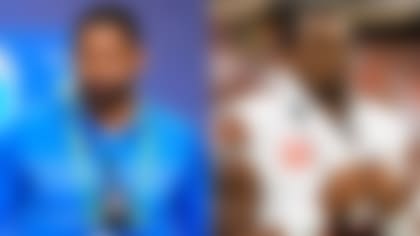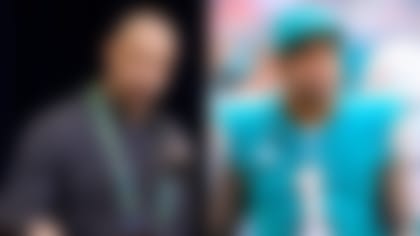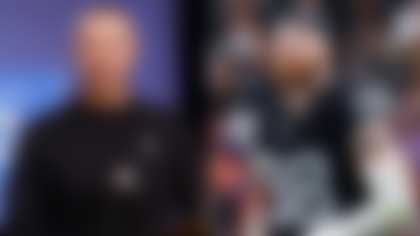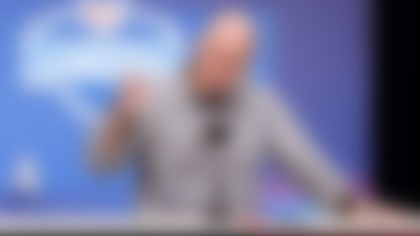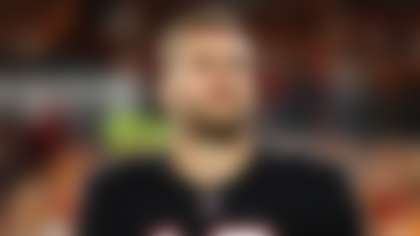For several years, Malcolm Jenkins' name has been firmly planted on the ever-growing list of athletes using their platform to advocate for change. Fresh off an emotionally stirring past few weeks for both the NFL and country at-large, Jenkins again spoke out on the things he would like to see actualized.
During an appearance on CBS This Morning on Tuesday, the New Orleans Saints safety shared with host Gayle King his thoughts on Commissioner Roger Goodell's public admission last week of the league's error in "not listening" to its players and the Black Lives Matter movement following the release of a poignant video that featured a bevy of NFL stars calling for the league to change its previous stance.
The needle-moving social media post, and Goodell's subsequent response, sparked a wide array of discourse over the past few days. Jenkins' impression of what the league had to say touched on a rather obvious omission, one that plenty of players feel still needs to be addressed.
"I still don't think they've gotten it right. Until they apologize specifically to Colin Kaepernick or assign him to a team, I don't think that they will end up on the right side of history," Jenkins said. "At the end of the day, they have listened to their players, they've donated money, they've created an Inspire Change platform. They've tried to do things up and to this point. It's been one player in particular they've ignored and have not acknowledged and that's Colin Kaepernick."
Jenkins, a co-founder of the Players Coalition, declined to speculate if Kaepernick, who has not played since 2016 when his protesting jumpstarted the call for action within the NFL, will play again in the aftermath of recent events. But he did follow that by saying that an important next measure would be for Kap's efforts to be formally recognized.
"I think the first step is just acknowledging, one, his contribution to all of the issues that we see going on now and all of the demonstrations that we see, and that's the biggest thing. Just acknowledge it and apologize," he added.
Jenkins' Saints teammate Drew Brees has also been under heavy scrutiny lately after controversial remarks he made about his perception of disrespect toward the U.S. flag from peacefully protesting players. Now that he's had more days to digest the situation, Jenkins was asked for his reaction on the passionate video response to Brees he posted last Tuesday.
"Yeah, I look back and I'm glad that I chose to post that video. I recorded that video and Drew actually reached out to me before I could post it and we had that same conversation, the same things that I said in the video I said to Drew Brees," he said. "But I thought that it was important that our country understand the pain that black people have been dealing with and that black people carry around. I think we're in that moment where we need truth before we can have reconciliation and that was an opportunity for me to share my truth, not only to Drew Brees, but to everybody who's watching."
Regarding the type of response he expects to see from NFL players going forward, Jenkins said he believes guys are "more motivated than ever to get involved, whether that's through protest or through advocacy, their own charities." He envisions that there is "definitely going to be larger participation from athletes, just in social activity in general," but is unsure if that will translate to kneeling or protesting during the anthem similar to four years ago.
Jenkins, like many others, will continue to focus his energy toward the overwhelming need for police reform in the U.S. After protesting over the weekend in Philadelphia, where he played for the past six seasons, he's even more fired up.
"I think the biggest thing that we want to see is a defunding from the police and people need to understand what that means," Jenkins said. "It doesn't mean that we eradicate police completely. It means that in a city like Philadelphia, which is the poorest large city in the country, you're dealing with the effects of COVID-19 and the financial effects with that.
"In our society, you have 10 million kids going to schools with police officers in 'em and no social workers, three million that got police in their schools and no nurses, six million with police in their schools but no psychologists. Yet, we want to invest in putting more police on the streets and over-policing, we know, does not make our community safer. So, we'd rather see that money go into programs that help with entrepreneurship, that help with our schooling, that help with black people who've been disproportionately affected by COVID, and those things that we know help our community members that need to climb out of poverty and those things help deal with public safety."




